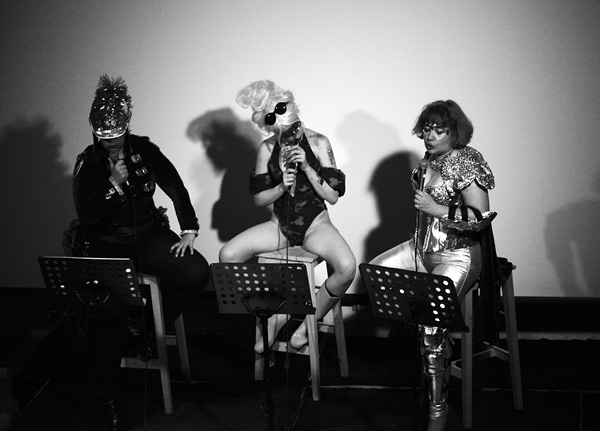
SOUTH: THE BORDER OATH VERSION
first performed on May 6, 2016
KET, Athens, Greece
performed once in 2016
ISTANBUL QUEER ART COLLECTIVE / SEDA ERGUL, TUNA ERDEM, LEMAN SEVDA DARICIOGLU
Burak Serin
Istanbul, Turkey
206311878i206311878s206311878t206311878a206311878n206311878b206311878u206311878l206311878q206311878u206311878e206311878e206311878r206311878a206311878r206311878t206311878c206311878o206311878l206311878l206311878e206311878c206311878t206311878i206311878v206311878e206311878@206311878g206311878m206311878a206311878i206311878l206311878.206311878c206311878o206311878m
facebook.com/istanbulqueerartcollective
SOUTH: THE BORDER OATH VERSION
ISTANBUL QUEER ART COLLECTIVE / SEDA ERGUL, TUNA ERDEM, LEMAN SEVDA DARICIOGLU
“South No.3” is a Fluxus score written by Takehisa Kosugi in 1965, and has been performed numerous times all over the world. The score asks the performers to turn the word ‘south’ into sounds by pronouncing every syllable and letter, in every combination possible.
In the version we performed at Sound Acts: Music, Performance, Identity Festival in Athens, we replaced the word ‘south’ with a paragraph long military oath in Turkish, calling it “South: The Border Oath Version.” The oath roughly translates as:
“I am the guardian of the honor and purity of the noble Turkish nation and the indivisible unity of land and nation. My eyes are glued to the area under my responsibility and my ears are tuned to my commanding officer. I am ready to give up my life willingly for land and nation, my captain.”
As queer women artists (doubly exempt from obligatory military duty both as women and as homosexuals), we repeated this oath for 40 minutes in drag costumes of mock military uniforms. In a way, this mimicked the repetition of the text by the soldiers who speak the original version. However, by opening ourselves to free associations, each time we repeated the text we created a different version of it. Consequently, we turned Turkish into gibberish and accentuated the possible different combinations and hidden phrases to be found using the same letters and syllables within the oath to create a counterpoint to what it is trying to say.
As any child would know, repetition hollows out the meaning of words, draining them of their precarious certainty; it distorts and mocks them. As any self-respecting minimalist avant-garde artist would know, repetition is a tool that enables one to detect even the smallest differences in what would have passed as sameness.
Our aim was to steer away from the inherent stability of language, toward the performative, immediate, humorous, and playful world of sounds. By doing so, we hoped to call into question the inherent stability of physical borders and the conceptual foundations that lie behind our need for them.